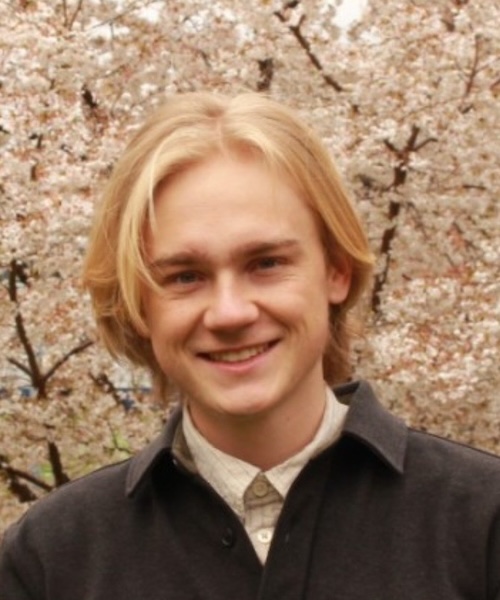Long before I landed in Dakar, the humid summer afternoons of Gainesville, Florida, offered an unexpectedly authentic exposure to the language, music, and cuisine of Senegal. Through the African Flagship Languages Initiative (AFLI) sponsored by the federally-funded Boren Scholarship, I joined a cohort of ten students for a summer semester at the University of Florida for eight weeks of coursework and cultural immersion. Seated around shared bowls of classic Senegalese dishes like ceeb ü jen (rice and fish) and yassa poulet (chicken yassa), we listened as our professors weaved through intricate discussions of politics in West Africa and laughed as our language partners explained the dating scene in Dakar. Central to each of these discussions was the role of Islam, the dominant religion in Senegal, and we were even invited to celebrate Eid (referred to as Tabaski in Senegal) at the home of our Wolof language teacher. Throughout both the summer months in Gainesville and the fall semester in Dakar, the wide-ranging impact of faith in society, politics, and culture provided ample opportunity for reflection, engagement, and learning.
Saint Louis: Religion and Society
Late in September, I found myself meandering past the aged French colonial buildings that line the wide, airy streets of St. Louis. Once the capital of France’s colonial holdings in West Africa, the ever-changing face of the past is hard to miss in St. Louis. Among the most prominent examples of coastal communities devastated by the impact of climate change, entire blocks of coastal settlements have been washed away, wildlife habitats destroyed, and families are regularly forced to relocate elsewhere as sea levels rise. Several miles inland lies the community of Khar Yalla, which means “waiting for God” in Wolof, the lingua franca of Senegal. On an academic visit to St. Louis, our cohort visited Khar Yalla in order to witness the firsthand impact of climate change in vulnerable areas.
As the midday sun glistened against a shallow mirage of standing water, we listened as the steady murmur coming from a ramshackle wooden structure behind a teal mosque continued to grow. Under a patchwork of colorful tarps, a few dozen school-aged talibes, or students of the Quran, gathered to recite the verses and surahs they were learning in order to eventually memorize the entirety of the Quran. Despite the millions of dollars allocated by the European Union, the United Nations, and the French government to combat climate-related displacement, the families at Khar Yalla have remained without access to permanent buildings, sanitation, education, or vital job opportunities. Even so, the subtle hum of the students reciting Quranic verses seemed to underscore the integral role of faith in shaping the outlook of the community. As its residents continue to feel separated from their homes and economic lifelines in St. Louis, both dedication and creativity foster the continued importance of spiritual development in Khar Yalla.
Dakar: Religion and Politics
About five hours south of St. Louis lies the bustling, cosmopolitan capital of Dakar. From early morning taxi rides to orange sunsets at the beach, I came to know the city well over the course of my semester abroad. With luxury high-rises hovering over impoverished neighborhoods, Dakar is a city of great contrast: it often felt as though people just a few blocks apart were existing in entirely different worlds. Across the city, a widespread lack of economic opportunity has embedded itself into the psyche of Senegal’s youth—popular sentiment that observers say has altered the political landscape of the country. As officials across Africa and Europe continue to discourage the dangerous boat journeys undertaken daily, which have inspired award-winning films like Io Capitano, the question of what lies ahead remains among the most pertinent.
Even so, a shared sense of national and religious pride permeated conversations I had in class and with my language partner, a student at Cheikh Anta Diop University in Dakar. In fact, I am not the first Hoya to document this—Glenn Ojeda (SFS ’14) wrote about the idea of a “Senegalese Exception” while in Dakar over a decade ago. Though it might seem like religion could become an afterthought in the face of issues like economic opportunity and migration, the youth of Senegal hold tremendous respect for their faith and its impact in everyday life. As my host brother explained it, there is an inherent sense of religious unity when your friends and neighbors gather together at the mosque early in the morning and late at night to partake in prayer, reflection, and conversation.
Casamance: Religion and Culture
As the semester wound to a close, a few of my classmates and I decided to explore Casamance, the southernmost region in Senegal about ten hours from Dakar by bus. Separated from the rest of the country by The Gambia and its namesake river, the religious landscape of Casamance proved markedly different from what we had become accustomed to in Dakar. From sun-bleached churches deep in the jungle to nuns clad in white wandering the streets of the regional capital, it felt as though the religious pluralism we had learned about previously came to life in the Casamance. Gazing out at the stars from our hotel one night, we met a young man who had come to town from the countryside for work. As we talked for hours under the bright moonlight, he began to teach us words in his native language, spoken by only ten thousand other people on the planet. Looking back at how we weaved from general vocabulary like water and sun, to learning why there are so many words for soil (hundreds of colors, textures, shapes, and so forth), and eventually listening to the soft hum of hymns, I now realize that this moment captures the essence of my semester in Senegal: immersion is a verb, not a noun.

